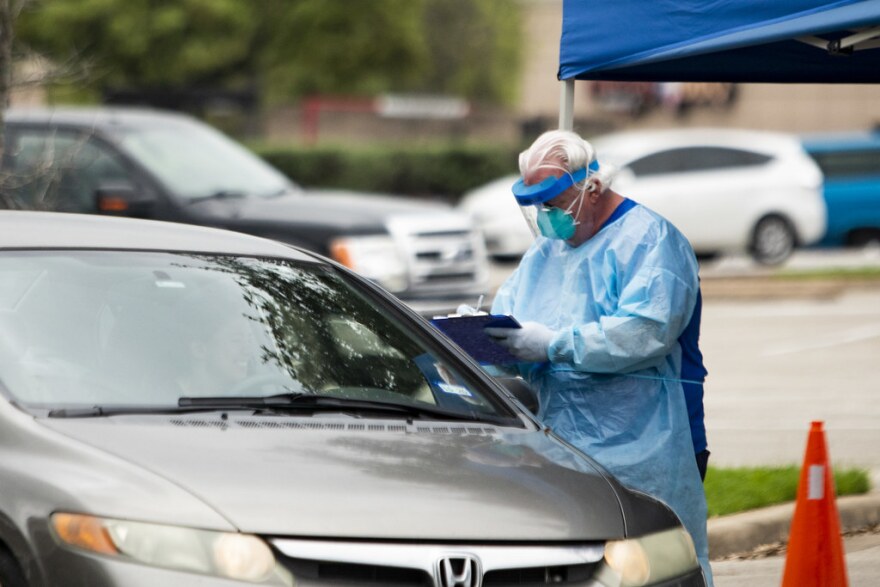Texas has seen a noticeable increase in the number of coronavirus tests being reported by the Department of State Health Services over the past week. The state saw its largest one-day total for reported tests to date Wednesday – at more than 49,000 tests, about four times as many tests reported the day before.
But it’s not clear just how accurate a picture of the current testing situation those numbers present. That’s because the count the state is reporting includes tests for both active viral infections and so-called "antibody" tests, which can determine if someone has had the virus in the past.
Active viral tests, or polymerase chain reaction (PCR) tests, are done using a sample of mucus from the respiratory system. Those tests are used to identify the presence of live virus. On the other hand, antibody tests are done using a blood sample. Those tests look for the presence of an immune response to the virus – an indication that you had the virus at some point in the past. These tests have only recently become available and there is evidence that they are unreliable.
The problem is, by combining these two types of tests in one number, the state may be misleading the public about its actual capacity to monitor the spread of the virus right now – and to contain it. By adding antibody tests to the overall number, the state is inflating the number of tests its using to find new cases that could be transmitted to other people.
There’s been tremendous public pressure to increase testing across the country – officials from the president and vice president to the Texas governor and the Austin mayor have acknowledged the need for more testing to identify and contain outbreaks of the coronavirus. Promises for more testing have been made since the beginning of the pandemic’s impact in the U.S. But testing per capita has remained stubbornly low. Texas is only averaging about 20,000 tests per day — short of the 30,000 daily test goal that Gov. Greg Abbott set. The U.S. is currently fifth in per capita testing.
Asked last week about how many antibody tests were included in the official count, a DSHS spokesperson said only that “some antibody results are included in our current testing totals and case counts.” They added that the agency doesn’t attribute last Wednesday’s surge in test reporting to antibody tests, but it’s still not clear how many are in the state’s overall count of nearly 700,000 tests.
Without that information, it’s hard to tell how much the antibody tests are skewing the numbers available to the public.
DSHS does say it plans to release those numbers, but has not indicated when.
“Now that antibody tests have become more available, we are working to provide data by type of test and whether cases are confirmed cases of active infection identified by PCR test or probable cases identified by antibody tests,” a DSHS spokesperson said in an email.
“You’re comparing apples to pears,” Gigi Gronvall, a senior scholar at the Johns Hopkins Center for Health Security, told The Atlantic in an article about Virginia’s practice of conflating viral tests with antibody tests. The two tests “look a little bit alike, but it doesn’t let you make the comparison needed. So why not keep them separate?”
Adding in antibody tests to the total count could also skew the public’s perception of how widespread testing is through the state’s test-positivity rate. That number compares the number of tests given to the number of people who test positive. A higher rate may indicate that only the sickest people are being tested – and many other cases, or people exhibiting mild symptoms – or even none at all – are not being tested.
Got a tip? Email Matt Largey at mlargey@kut.org. Follow him on Twitter @mattlargey.
If you found the reporting above valuable, please consider making a donation to support it. Your gift pays for everything you find on KUT.org. Thanks for donating today.





